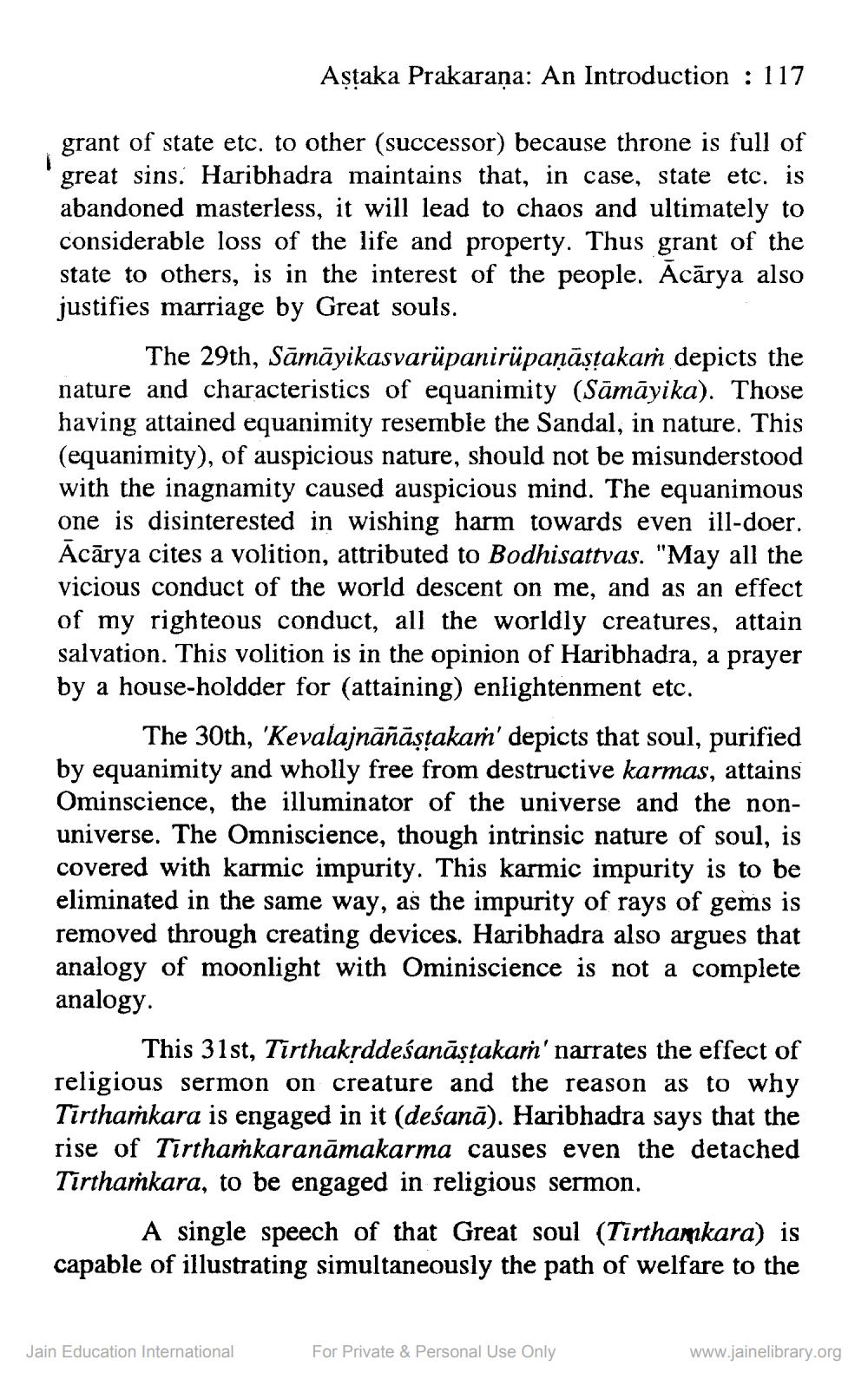________________
Astaka Prakarana: An Introduction : 117
grant of state etc. to other (successor) because throne is full of great sins. Haribhadra maintains that, in case, state etc. is abandoned masterless, it will lead to chaos and ultimately to considerable loss of the life and property. Thus grant of the state to others, is in the interest of the people. Acārya also justifies marriage by Great souls.
The 29th, Sāmāyikasvarüpanirüpaņāstakar depicts the nature and characteristics of equanimity (Sāmāyika). Those having attained equanimity resemble the Sandal, in nature. This (equanimity), of auspicious nature, should not be misunderstood with the inagnamity caused auspicious mind. The equanimous one is disinterested in wishing harm towards even ill-doer. Ācārya cites a volition, attributed to Bodhisattvas. "May all the vicious conduct of the world descent on me, and as an effect of my righteous conduct, all the worldly creatures, attain salvation. This volition is in the opinion of Haribhadra, a prayer by a house-holdder for (attaining) enlightenment etc.
The 30th, 'Kevalajnāñāstakam' depicts that soul, purified by equanimity and wholly free from destructive karmas, attains Ominscience, the illuminator of the universe and the nonuniverse. The Omniscience, though intrinsic nature of soul, is covered with karmic impurity. This karmic impurity is to be eliminated in the same way, as the impurity of rays of gems is removed through creating devices. Haribhadra also argues that analogy of moonlight with Ominiscience is not a complete analogy
This 31st, Tirthakrddeśanāsțakam' narrates the effect of religious sermon on creature and the reason as to why Tirthařkara is engaged in it (deśanā). Haribhadra says that the rise of Tirthařkaranāmakarma causes even the detached Tīrthaṁkara, to be engaged in religious sermon.
A single speech of that Great soul (Tirthamkara) is capable of illustrating simultaneously the path of welfare to the
Jain Education International
For Private & Personal Use Only
www.jainelibrary.org




